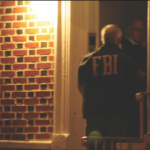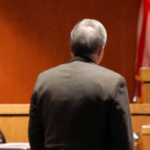Speedy Trial Is An Important Constitutional Right
A defendant has the right to a speedy trial. By asserting the right, the defendant can prevent the government’s requests for additional time to further investigate a case or to extend a defendant’s time in pretrial custody.

The Right to a Speedy Trial is Protected in State and Federal Court
The federal 6th Circuit Court of Appeals addressed the issue of speedy trial rights in the recent case of United States v Richardson (decided July 2015). Richardson sought dismissal of the case because of the nearly two-year delay between the second indictment and trial. The judge denied the motion because Richardson did not meet the four (4) factors relevant to a Sixth Amendment Speedy Trial Claim.
The four (4) factors are:
- the length of the delay,
- the reason for the delay,
- the timeliness of the defendant’s assertion of the right, and
- prejudice.
History of the Right to a Speedy Trial
The principle of a speedy trial, which emphasizes the importance of timely justice, traces its beginnings to the Magna Carta in 1215. This foundational English document hinted at the necessity for prompt justice, which grew in importance within the Anglo-American legal tradition. In the United States, the framers, wary of potential governmental abuses, enshrined this principle in the Sixth Amendment, guaranteeing every accused person the right to a speedy trial. Over the years, U.S. courts have deliberated on the exact parameters of this right, weighing factors like delay length and its reasons. Globally, the essence of a speedy trial has been acknowledged and incorporated into various human rights agreements and national constitutions, underscoring its universal importance.

What if a defendant’s right to a speedy trial is violated?
If a defendant’s right to a speedy trial is violated, several consequences can ensue, primarily for the benefit of the defendant:
Dismissal of Charges: The most common remedy for violating the Defendant’s right to a speedy trial is the dismissal of the charges against the defendant. If a court determines that the delay has prejudiced the defendant’s ability to receive a fair trial, it might dismiss the case entirely.
Release from Custody: If the defendant is in custody and the right to a speedy trial is violated, the defendant may be released from jail or prison.
Reversal of Conviction: If a defendant is convicted and later a court determines their right to a speedy trial was violated, the conviction can be reversed on appeal.
Reduction of Sentence: In some cases, even if a conviction isn’t overturned, violating the Defendant’s right to a speedy trial might result in a reduced sentence.
Exclusion of Evidence: Sometimes, evidence that has been gathered during the period of undue delay might be deemed inadmissible in court.
It’s important to note that not every delay in the trial process equates to a violation of the right to a speedy trial. Michigan courts often evaluate the reasons for the delay, the length of the delay, the defendant’s assertion of their right, and the prejudice to the defendant in determining whether a violation has occurred. If the delay is justifiable, such as gathering complex evidence or due to unforeseen circumstances, the right to a speedy trial might not be considered violated. Michigan judges bend over backward to assist and support the prosecution. It takes a highly credible, reputable, and influential defense lawyer to effectively advocate for relief due to a speedy trial violation.
Top Trial Lawyers Will Not Seek Delays Due to a Fear of Trial
The United States Constitution, and especially the Bill of Rights, state many protections for people charged with or suspected of committing crimes; one of the most important is the speedy trial right. A criminal defendant has the right to demand a trial be held expeditiously so that witnesses have fresh memories and there are no governmental shenanigans done to prejudice a defendant in any way. The good and affordable attorneys at LEWIS & DICKSTEIN, P.L.L.C. are specialists in representing people charged with criminal offenses and suspected of criminal offenses. The firm’s attorneys have decades of experience handling only criminal cases. LEWIS & DICKSTEIN, P.L.L.C. has an unmatched reputation for excellence and success.

Michigan Criminal Defense Attorney That Can Help With All Issues Relative to Criminal Law
Our attorneys are well respected by judges, lawyers, and current and former clients. Many of the firm’s attorneys have served as instructors at legal conferences, teaching other lawyers the ins and outs of practicing criminal law. The lawyers at LEWIS & DICKSTEIN, P.L.L.C. take their obligation to protect people against the Government very seriously. They take great pride in standing between our clients and the Government, ensuring that our client’s speedy trial rights are protected and that the playing field is equal and fair. If you have criminal law issues, problems, or questions, please call LEWIS & DICKSTEIN, P.L.L.C. for a free consultation. We look forward to helping you and are “Not afraid to win!”
Call us today at (248) 263-6800 for a free consultation or complete an online Request for Assistance Form. We will contact you promptly and find a way to help you.













